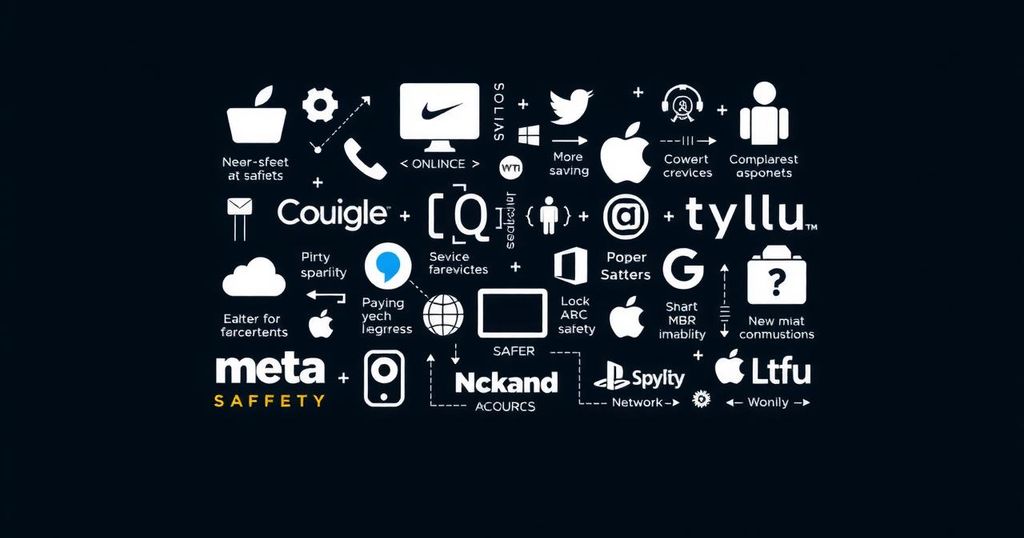Meta has introduced a plan requiring parental approval for children under 16 to download apps, as part of its commitment to online safety. This proposal follows a directive from Australia’s eSafety Commissioner for tech platforms to develop safety codes. Apple criticized Meta’s approach, indicating that responsibility for safety should not solely rest on device manufacturers. Advocating for a collaborative response among all major players, the article highlights a missed opportunity for holistic child safety solutions.
Meta, the parent company of social media platforms Instagram and Facebook, has announced a plan aimed at enhancing online safety for children, proposing that parents must approve their children’s requests to download popular mobile applications. This initiative follows a directive from Australia’s eSafety Commissioner, Julie Inman Grant, who has urged major tech platforms to collaborate on protective measures for minors against online hazards. However, Meta’s declaration has elicited criticism from Apple, which contends that Meta is evading its own obligations regarding user safety. The current landscape suggests that rather than each tech giant shifting responsibility onto others, they ought to unite in the pursuit of effective solutions for child safety. Meta’s proposal, suggesting that children under the age of 16 should not be allowed to download applications without parental consent, aligns with government sentiments advocating for age restrictions on social media. Both Apple and Google already provide parental approval functions for app installations, and Meta’s proposal could yield higher efficacy by establishing mandatory approval settings during device setup for underage users. While this system facilitates a one-time age verification process, it concurrently shifts the onus of child safety policy primarily to platform providers like Apple and Google, sending a message that Meta is relinquishing some of its responsibilities as an application provider. A more collaborative approach among industry players, particularly between Meta and other application providers such as TikTok and Snapchat, in conjunction with mobile platform providers like Apple and Google, would yield more comprehensive solutions for child safety online. By enabling a system where parental consent is integrated with applications, mobile platforms could automatically activate additional protective measures, such as content filtering and notifications for parents. Additionally, these safety protocols should extend beyond social media applications to web browsers, advocating for a collaborative standard for child safety protocols that could be enforced at the level of app stores.
The need for enhanced online safety has become increasingly urgent as children become more exposed to digital content. Research has shown that children frequently encounter harmful material online at a young age. The Australian government has recognized the importance of this issue, prompting a trial for age assurance technologies aimed at safeguarding minors from inappropriate content. Meta has entered this discourse at a crucial juncture, which raises questions about its motivations and the potential for collaboration amongst tech giants to better protect children from online dangers.
In conclusion, while Meta’s proposal to enhance online safety for children signals a proactive stance towards addressing significant issues, it underscores the ongoing challenge of accountability among tech giants. There is a pressing need for these companies to shift from a competitive narrative to one of cooperation, creating a robust framework that prioritizes the safety of young users. Collaborative efforts could cultivate more effective solutions, ultimately benefiting not only the child users but also parents and the digital ecosystem at large.
Original Source: theconversation.com

Leave a Reply